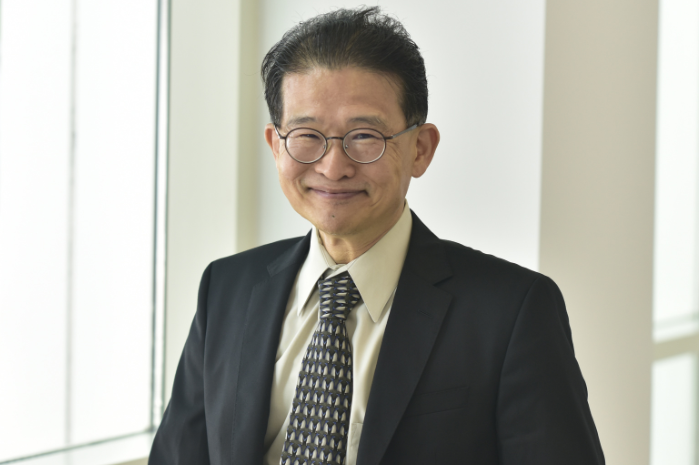
|
 |
CEEE Co-Director Yunho Hwang |
|
In an effort to phase down the use of hydrofluorocarbon (HFC) refrigerants that contribute to climate change, the Center for Environmental Energy Engineering (CEEE) is collaborating with researchers worldwide to advance the use of heat pump refrigerants with low global warming potential (GWP). Last month, CEEE Co-Director Yunho Hwang led a global webinar hosted by the non-profit Technology Collaboration Programme on Heat Pumping Technologies (HPT TCP) to disseminate the latest research led by HPT TCP’s Annex 54, which is devoted to advancing low-GWP refrigerants and developing design guidelines for optimized components and systems for low-GWP refrigerants. Hwang, a worldwide leader in heat pump technology and the development of eco-friendly refrigerants, heads Annex 54 as its operating agent.
Annex 54 participating members from around the world provided updates, including CEEE Postdoctoral Research Associate Lei Gao, who reported how the United States is working to advance low GWP refrigerants — some of which are flammable — while keeping safety top of mind. Other presenters included experts from France, Germany, Italy and Sweden. Hwang also summarized research results from Korea, Japan and Austria.
The detailed presentations covered the diverse approaches and research findings from each participating country, emphasizing both the technical and environmental benefits of adopting low-GWP refrigerants in heat pump systems. The researchers also addressed the safety challenges of the transition and discussed solutions.
The international community has committed to phasing down HFCs under the Kigali Amendment to the Montreal Protocol. The amendment was adopted in 2016 and requires participating countries to cut the production and consumption of HFCs by more than 80% over 30 years. Global implementation of the Kigali Amendment is expected to avoid up to 0.5°C of warming by 2100.
A recording of the webinar is available to watch on demand.
Related Articles:
DOE Ups Its Investment in UMD to Develop Eco-Friendly Heat Pumps
CEEE Research Professor Yunho Hwang to Receive Provost’s Excellence Award
How Much Wood Could a Heat Pump Dry?
Elastocaloric Cooling Named One of the Top 10 Emerging Technologies to Address Global Challenges
CEEE Researcher Named Finalist in UMD’s 3MT Competition
Miao Yu to develop cost-effective sensor for measuring lake health
Miao Yu receives NSF funding to develop ice-measuring sensors
Steven Gabriel featured on Energy Transition podcast
July 12, 2024
|

